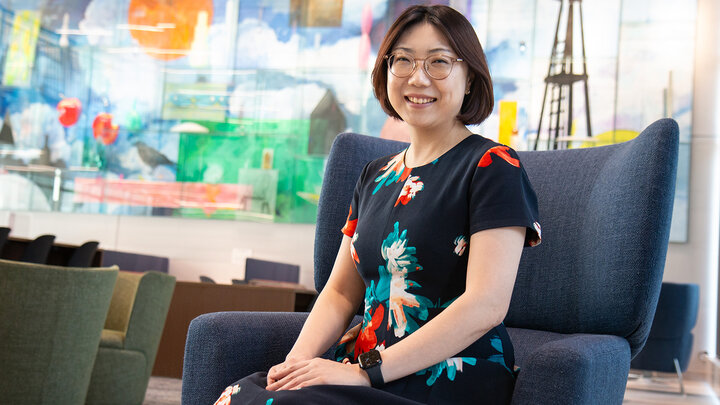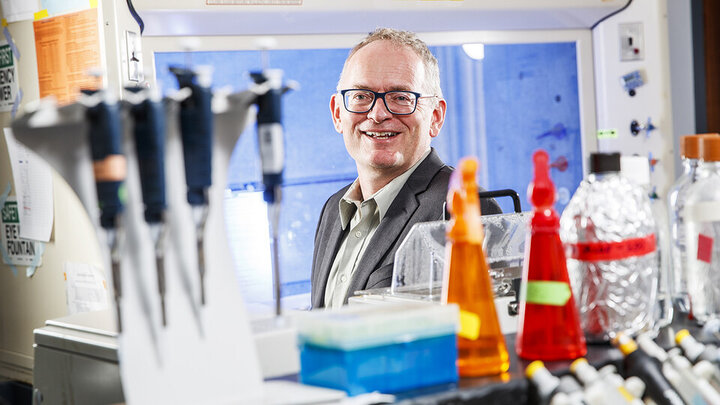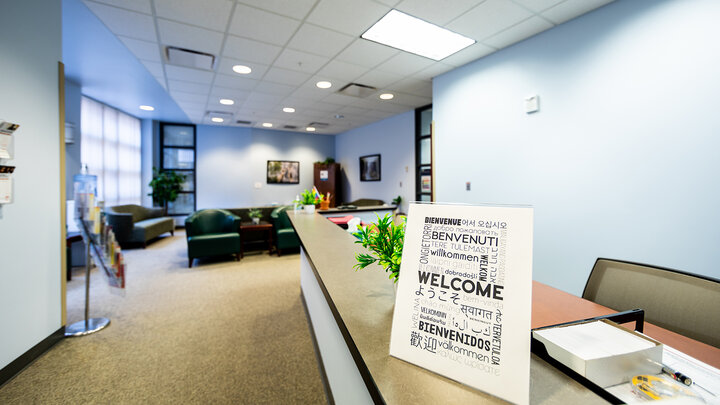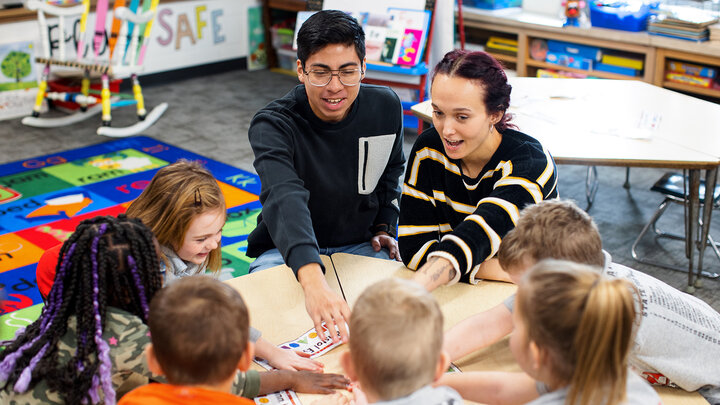For families raising a child with autism spectrum disorder, everyday moments of connection can be difficult. The disorder affects about 1 in 36 children in the U.S., according to the Centers for Disease Control and Prevention, and often hinders social communication skills essential for personal, professional and academic growth.
HyeonJin Yoon, research assistant professor at the Nebraska Center for Research on Children, Youth, Families and Schools (CYFS), is leading the University of Nebraska–Lincoln’s role in a cross-campus study exploring how parents’ mental health affects how they communicate with their autistic children. The project, funded by the University of Nebraska Medical Center’s Great Plains IDeA CTR, includes researchers from UNL, UNMC and the University of Nebraska at Kearney.
Researchers at each site — Lincoln, Omaha and Kearney — are recruiting two groups of participants: families with autistic children and families with typically developing children. The target age range for children is 6 to 10.
“This project is designed to make a meaningful impact on Nebraska families and children by closely examining the dynamic between parent mental health well-being, and parent-child communication,” Yoon said. “What makes this project unique is that we are gathering data and implementing the research in parallel, at all three sites.”
During each visit, parents complete a mental health survey that assesses emotions, anxiety, depression and stress levels. Parents and their children then participate in a brief play session with toys, which is recorded and analyzed to determine potential links between parents’ overall psychological well-being and how they communicate and interact with their child.
Yoon said this research is especially timely following the COVID pandemic, which disrupted access to health and support services for many families.
“What excites me most about this project is the opportunity to better understand the connection among parenting, well-being, their mental health, and parent-child communication,” Yoon said. “We don’t fully understand how those areas relate, especially in families of children with autism. I’m looking forward to uncovering those relationships, which will hopefully lead to more personalized support or intervention for both autistic children and their caregivers.”
Years ago in her native South Korea, Yoon taught middle school and was able to interact with students with special needs, including those on the autism spectrum.
“That experience sparked my interest in understanding how to support students with diverse needs, which became the core focus of my research,” she said. “More recently, I’ve had the opportunity to work closely with individuals with neurodiversity, and to learn both the challenges they face and the strengths they bring. That’s one of the things that makes this project special for me.”
Learn more about this project in the CYFS Research Network.




